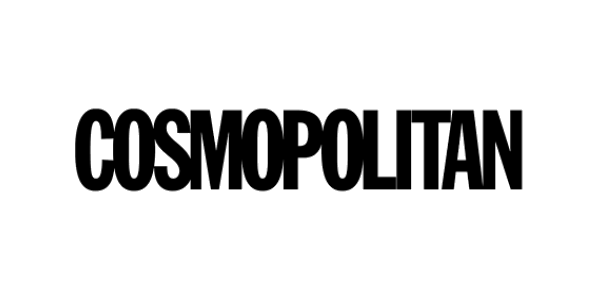
Brisbane Somatic Psychotherapy
& Counselling
A safe space to understand the impact of unresolved developmental trauma that your body, mind and heart are still holding.

Brisbane Somatic Psychotherapy
& Counselling
A safe space to understand the impact of unresolved developmental trauma that your body, mind and heart are still holding.

Hi, my name is Natajsa Wagner. I am a Somatic Psychotherapist.
I believe that the relationship we have with ourselves and others is the essential ingredient to our emotional health, happiness and well-being. I also believe that healing happens in relationship and this approach is at the heart of my therapy work.
I work with people who have experienced developmental trauma (also known as adverse childhood experiences) which includes physical or emotional abuse, neglect and other stressful adversities including intergenerational trauma.
Relational trauma is challenging because our past experiences can leave us stuck in old reactions and patterns that hold us back
Common symptoms of trauma include:
Challenging physical symptoms like chronic pain, body tension, feeling on edge, zoning out anxiety and depression.
Negative thoughts, e.g. I’m not good enough, I’m to blame, I’m unlovable.
Difficulty managing emotions like anger, shame and fear.
Intrusive memories or thoughts from the past.
Learn more about somatic therapy for complex trauma and dissociation.
Healing is not a linear process
My role is to support you in understanding the impacts of trauma.
As a trauma therapist, I work somatically with the body, brain, and nervous system to help guide you in effectively processing unresolved trauma so that you can live life in a way that is meaningful and fulfilling to you.
Why work with me?
Experienced
I'm a registered clinical psychotherapist with over a decade of experience helping adults resolve childhood trauma. I help you understand the patterns and dynamics that were formed in your early experiences. Together, we get to the heart of emotional challenges so you can process unresolved trauma, experience transformation and heal.
Trauma-Informed
In counselling, we'll work together in 3 phases: 1) Safety and stabilization - you'll discover and develop somatic resources and mindfulness skills to manage symptoms of trauma, 2) Processing trauma memory (not reliving it) so it can take its place in the past, and 3) Making meaning and moving forward with your life and vision.
Evidence Based
I work with top-down (cognitive) approaches, as well as bottom-up (somatic/body-based) approaches. When we experience trauma, the energy becomes stuck in our bodies until it can be released, so we need approaches that work with both mind and body to effectively process trauma. Trauma is not the event, it’s what happens inside of us.







Somatic Trauma Therapy In Brisbane
Trauma causes structural, functional, and chemical changes to the developing brain.
Our childhood experiences shape us into the adults we become.
While many recover from trauma with support, some find it challenging to manage the impacts.
The wonderful news:
Your brain is malleable and capable of creating new pathways that promote healing and recovery.
In the words of Peter Levine “Human beings are born with the innate capacity to triumph over trauma. I believe not only that trauma is curable, but that the healing process can be a catalyst for profound awakening – a portal to emotional and genuine spiritual transformation.”
My Experience
I am a certified Sensorimotor Psychotherapist. SP is a body based modality for trauma and attachment issues that helps people discover and change habitual physical and psychological patterns that impact well-being.
I am Somatic Experiencing® Practitioner. (SE™) is a body oriented approach created by Dr Peter Levine, that aims to resolve symptoms of stress, shock, and trauma that accumulate in the body when we are stuck in patterns of fight, flight, or freeze.
I am a Facilitator for The Blue Knot Foundation (The National Centre for Excellence in Complex Trauma) providing specialist training, consultation and supervision for Clinicians and organisations on the topic of complex trauma.

Therapy can help you
1. Develop self-awareness and knowledge
Knowledge is power and therapy allows you to gain a deeper insight and awareness of who you are as well as an opportunity to learn about how your body and brain work. Our brain is resilient and adaptable, with the capacity to grow, change and transform.
2. Discover your unique strengths, resources, and resilience
You’ll discover and build on the unique strengths and resources that you possess. As you continue to honour your resources and develop emotional resilience you can recognize your capacity for change and healing.
3. Strengthen the connection between mind and body
As a body-oriented therapist, I also work somatically to tap into the wisdom of your body and provide you with resources and skills to help you experience safety in your body and to regulate your nervous system.
4. Communicate your feelings, emotions, needs and boundaries
Many people have learnt to shut down their own needs or expression of who they are because they were shamed or made to feel wrong. Therapy is a place to discover how to communicate unmet needs, express your boundaries and find healthy ways of connecting with others.
5. Process grief & loss
Working with trauma means that we will ultimately meet our feelings of grief and loss. We grieve, not only about what happened that should not have happened, but also what didn’t happen that should have happened. Therapy is a safe and supportive space to be able to explore our grief and the emotions that come with it.
Looking for more resources?
You can unlimited access to all my psycho-educational blogs for a one time fee of $4.99 AUD. Some Blogs are also available for free.

Somatic Trauma Therapist in Brisbane
Natajsa Wagner is a Clinical Psychotherapist in Brisbane specialising in somatic trauma therapy for complex trauma and dissociation. She is a Certified Sensorimotor Psychotherapist and trainer, offering evidence-informed, body-based treatment grounded in trauma neuroscience, attachment theory, and contemporary nervous-system research
Follow me on Instagram
For more complex trauma related content



















